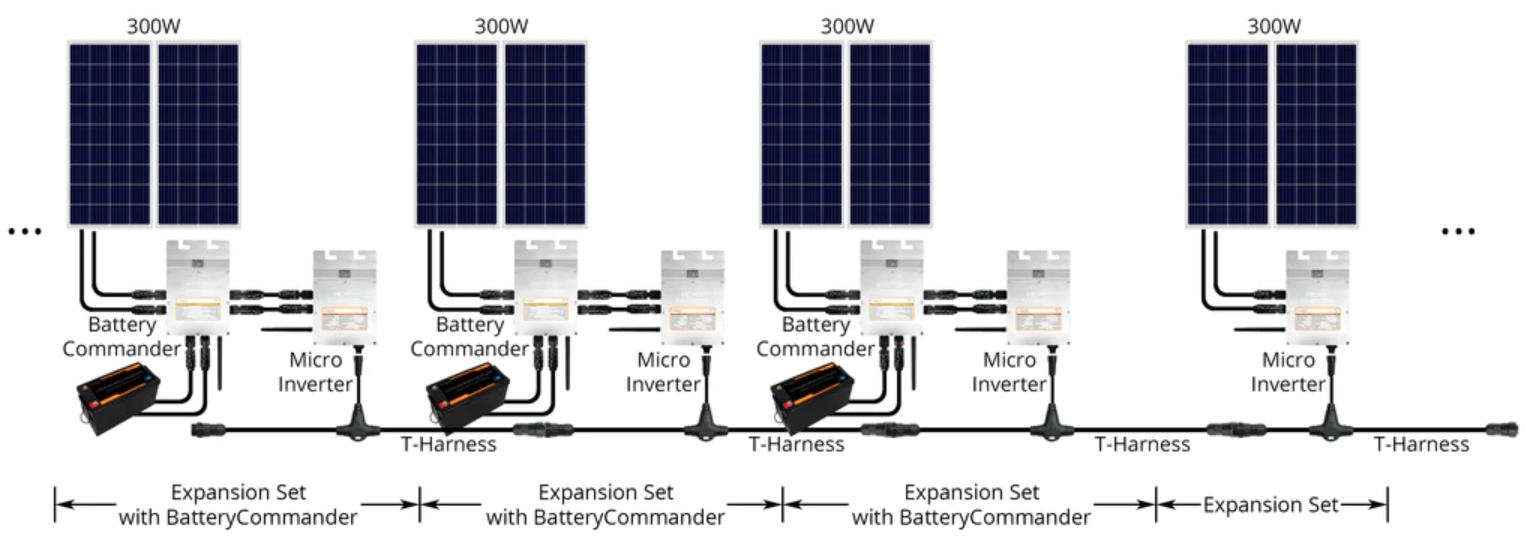
Micro inverter solar solutions, especially in small-scale applications like residential or small business settings, are making a significant impact due to their unique advantages and technological innovations. Here’s how these solutions are bringing about big changes:
Enhanced Efficiency in Small Spaces
- Optimized Use of Limited Roof Space: Micro inverter solar excel in situations where space is at a premium. Each solar panel operates independently, allowing for maximum power generation even in limited or irregularly shaped spaces.
- Ideal for Urban Settings: In urban environments where shading from buildings and trees is common, micro inverter solar ensure that the performance of each panel is not compromised, unlike traditional systems where the output of all panels is affected by the weakest one.
Flexibility and Scalability
- Modular Nature: Homeowners or small business owners can start with a few panels and expand their solar array over time. This scalability is especially beneficial for those with budget constraints or evolving energy needs.
- Diverse Applications: Micro inverter solar can be easily integrated into various settings, including residential rooftops, small business premises, community solar projects, and even portable solar installations.
Improved Safety and Reliability
- Reduced Fire Risk: By converting DC to AC at the panel level, micro inverter solar greatly reduce the risk of high-voltage DC currents, which can be a fire hazard.
- Higher Reliability: With no single point of failure, micro inverter solar systems are generally more reliable. If one inverter fails, it only affects one panel, not the entire system.
Eco-Friendly Impact
- Maximizing Green Energy Harvesting: Micro inverter solar ensure that even in less-than-ideal conditions, such as partial shading, each panel contributes its maximum potential, leading to more efficient use of solar energy.
- Reducing Carbon Footprint: By optimizing energy production, micro inverter solar contribute to more substantial reductions in carbon emissions, aligning with global efforts to combat climate change.
Economic Advantages
- Long-Term Savings: Despite a higher initial cost, the increased energy output and longevity of micro inverter solar can lead to significant savings over the lifespan of the solar system.
- Government Incentives: In many regions, the installation of solar energy systems, including micro inverter solar setups, is supported by government incentives and rebates, making them more accessible to homeowners and small businesses.
Advanced Monitoring and Ease of Maintenance
- Real-Time Data Tracking: Users can monitor the performance of each panel in real time, allowing for immediate identification and resolution of any issues.
- Simplified Maintenance: With less complex wiring and individualized components, maintenance and replacements are more straightforward, reducing downtime and costs.
Conclusion
Micro inverter solar solutions are reshaping the landscape of small-scale solar installations. Their ability to maximize efficiency in varied conditions, combined with their safety features, scalability, and environmental benefits, positions them as a crucial technology for a sustainable energy future, especially in residential and small business applications. As technology advances, we can expect these solutions to become even more accessible and impactful.
